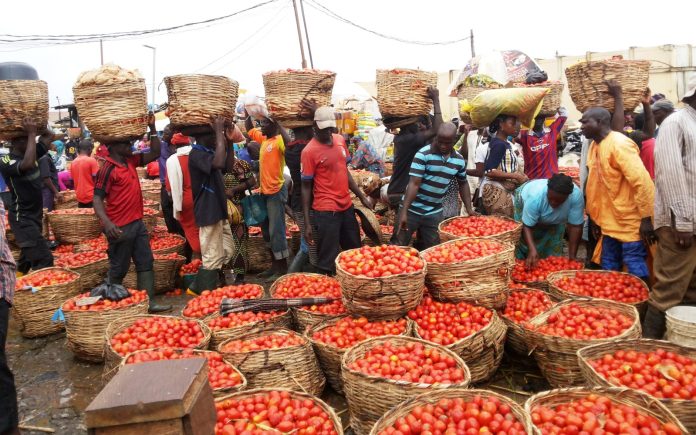
The Federal Government has talked about the high cost of food items.
The FG identified food insecurity, malnutrition as well as climate change as factors responsible for lower incomes and higher prices of foods in the country.
It says the challenges have seriously put food out of the reach of many Nigerians.
According to a statement by the Ministry of Finance spokesperson, Olude Omolade, the Permanent Secretary, Budget and Planning, Nebolisa Anako, disclosed this at an ongoing workshop on the development of an implementation strategy for the Nigeria Food Systems Transformation Pathways held in Abuja.
Anako who was represented by the Director, National Monitoring and Evaluation, Zakari Lawani, described the ongoing programme as a call to action to achieve progress in dealing with issues of poverty, hunger, malnutrition, disease, unemployment, conflict and changing weather patterns.
He said, “It suffices to say that food insecurity and malnutrition as well as the influence of climate change have resulted in lower incomes and higher prices of foods”.
“This has indeed put food out of the reach of many and undermining the right to food thereby stalling the efforts to meeting the Sustainable Development that emphasized ‘zero hunger’”.
The PUNCH reports that this assertion tally with the latest report by the National Bureau of statistics that an increase in the price of bread, cereal, rent, potatoes, yam, tubers, vegetables, and meat drove inflation up in February.
The national statistics body of the country stated, “The contributions of items on a class basis to the increase in the headline inflation index are presented, thus: bread and cereal (21.67 per cent), actual and imputed rent (7.74 per cent), potatoes, yam and other tubers (6.06 per cent), vegetable (5.44 per cent), and meat (4.78 per cent).”
He further stated that the journey of food systems dialogues in Nigeria started in January 2021 with Nigeria responding to the call by the Secretary General of the United Nations that countries should look inward and organise different levels of dialogue to identify issues and challenges around the Food Systems and come up with sustainable innovative strategies towards ending hunger and all forms of malnutrition in line with SDGs.
He then called on all relevant stakeholders including government at all levels, developmental organisations to support the implementation of all the priority actions with the 2022 call to action as well as mobilise more resources and monitor progress.
“It is important to note that this workshop is an opportunity to review and endorse the underpinning principles and the key thrust of the implementation strategy, finalize the governance and coordination arrangements, institute the monitoring and evaluation framework for the implementation of all the 78 priority actions as well as to validate the 2023 action plan,” Anako stated.
Meanwhile, a steering Committee has been constituted to provide technical support for the development of the 2023 coated action plan at the global stock-taking scheduled to hold in Rome in July 2023.
